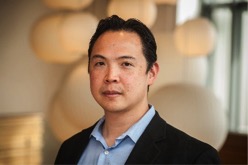
Fred Shic
Investigator
Fred Shic is an Associate Professor of Pediatrics at the University of Washington and an Investigator at Seattle Children’s Research Institute’s Center for Child Health, Behavior and Development. He has been an autism researcher for 15 years and, as a computer scientist by training, brings an interdisciplinary perspective to early developmental, therapeutic, and phenotyping research. He leads Seattle Children’s Innovative Technologies Laboratory (SCITL, pronounced “Skittle” to the dismay of our health-research colleagues), a lab focused on advancing and refining technology-based tools, including eye tracking, functional near infrared spectroscopy, robots, mobile apps, and video games. His goals are to understand lifespan trajectories leading to heterogeneous outcomes in ASD, and to develop methods for positively intercepting these trajectories. To enable this, he focuses on big data perspectives of phenotypic variation, biomarker discovery enabled via technology, and rapid, adaptable, evolving frameworks for outcomes research applicable to diverse populations. His current and prior work, funded by NIMH, Simons Foundation, and Autism Speaks, includes developmental, psychological, and applied autism research as well as methods engineering aimed at creating and refining analytical and predictive techniques. Previously, he was an engineering undergraduate at Caltech, a Sony PlayStation video game programmer, a magnetic resonance spectroscopy brain researcher, and a graduate student at Yale Computer Science’s Social Robotics Lab. It was during this graduate work when, needing child gaze patterns to program an attention system for a baby-emulating robot, he was first introduced to autism research at the Yale Child Study Center. He continued this work as an NIMH T32 postdoc in Childhood Neuropsychiatric Disorders and then as an Assistant Professor at the Yale Child Study Center before relocating to Seattle.
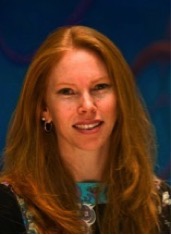
Sara Webb
Investigator
Sara Webb is a Professor of Psychiatry and Behavioral Sciences at University of Washington and an Investigator at UW’s Center on Human Development and Disability as well as Seattle Children’s Research Institute in the Center for Child Health Behavior and Development. Her research focuses on the functional neurobiology and development of information processing in individuals with autism spectrum disorder and other developmental disorders, as well as in individuals with typical development. She currently uses EEG, event-related potentials (ERPs), eye-tracking, and behavioral measures to study how children encode, store, and retrieve information about visual images such as faces, and how these processes are impacted by developmental disruptions. Her current work covers several areas including (1) attention, perceptual, cognitive, and social abilities in individuals with developmental disabilities including autism, Fragile X, and developmental delay; (2) early risk markers and protective factors for ASD; and (3) development of biomarkers for use in clinical trials. These projects represent an effort to understand the neural circuits that contribute to and underlie atypical development. Currently, she is the principal investigator of several projects sponsored by the NIH and has had funding from Autism Speaks, Autism Science Foundation, SFARi, Korean Foundation, and Seattle Children’s Research institute.
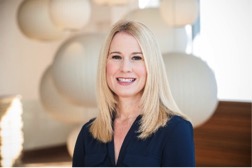
Sarah Corrigan
Clinical Research Coordinator - Lead
Sarah Corrigan, Clinical Research Coordinator – Lead and Licensed Counselor. She received her BA in Psychology and MA in Experimental Psychology from Florida Atlantic University. Her undergraduate and graduate studies focused on social, personality, and developmental psychology. After graduating, Sarah worked as a case manager and educator for children with disabilities in early intervention for 6 years. Sarah joined Seattle Children’s in 2011 to focus on pediatric research, in particular Autism Spectrum Disorder work. Sarah’s favorite part of the WONDER study is being able to play and interact with babies and toddlers.
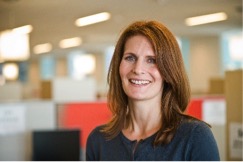
Heather Violette
Research Manager
Heather Violette is a Research Manager in the CHBD and a licensed clinical psychologist. She has extensive experience in managing research projects with targeted recruitment in community and pediatric settings, including the Bright Start (Promoting Optimal Parenting) Project.

Jessica Benton
Clinical Research Coordinator II
Jessica earned her B.A. in Psychology from Whitworth University in 2015 with a focus onexperimental psychology. During her time at Whitworth she worked as a research assistant at Washington State University’s Sleep & Performance Research Center, investigating how sleep deprivation affects decision making. In 2019, after working as a behavior specialist in a range of settings, she went on to receive her M.A. in Child Applied Psychology from the University of Washington. Jessica joined Seattle Children’s Hospital as a therapist intern for the OCD Intensive Outpatient Program and now works for the Seattle Children’s Research Institute on the ABC-CT project looking at biomarkers in autism.

Andy B. Lupas
Postdoctoral Fellow in Psychology
Andy B. Lupas, Postdoctoral Fellow in Psychology joined Seattle Children’s in 2019. She works both at the Seattle Children’s Autism Center and Research Institute. At the Autism Center, Andy is a clinician in the Biobehavioral Program, RUBI Parent Training Program, Mood and Anxiety Program, and interdisciplinary teams evaluating for autism spectrum disorder. She is also a clinician on the WONDER study at the Seattle Children’s Research Institute. Her past research has focused on adult learning of gold-standard autism spectrum disorder evaluation tools, caregiver tracking of children’s developmental milestones, and group treatment of autism spectrum disorders. Andy received her PhD from the University of Wisconsin-Madison and completed her predoctoral internship at Kennedy Krieger Institute/Johns Hopkins Hospital. Her favorite part of the WONDER study is watching babies discover object permanence – that objects still exist, even after being hidden under something else!
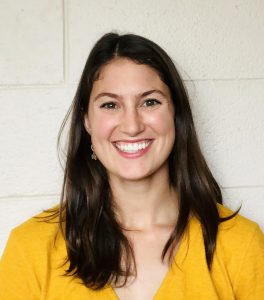
Katherine Riley
Kate Riley graduated from Colby College in 2016 with a B.A. in Psychology and a concentration in Neuroscience. She worked as a clinical neurology research coordinator for two years at Boston Children’s Hospital as a part of the Rett Syndrome and related disorders research team. She switched gears for a year, living in the Oregon desert and working with adolescents and young adults in a wilderness therapy program. She joined Seattle Children’s Innovative Technologies Lab (SCITL) in March 2020 to work on the WONDER study. Currently, she’s pursuing her Master’s in Clinical Mental Health Counseling at Seattle University. She’s interested in counseling families with children with neurodevelopmental disorders and exploring the benefits of spending time in nature on mental health.
